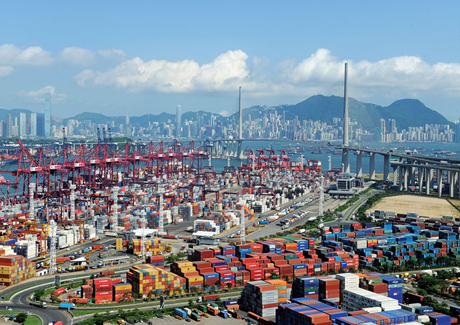ASK THE EXPERT – 2: What is Private zones
By
Chris Ndibe
MD/CEO Carlcon Group & Free Zone Expert
Last week, Sept. 8, 2021, we took on the explanation and the esprit of public Zone in the ownership structure of Free Zones. This time, I am taking up the explanation of private zones.
PRIVATE ZONES
A zone is Private when it is owned by a private company, obtaining an operational license from government to operate in a place of choice. All terms and conditions will be adhered to.
Those espousing for the private zones advance the following reasons and conviction for the Private Free Zones development.
In today’s world, we are heading towards a global economy where one must be competitive and efficient in order to survive. The Private sector which is profit oriented strive for competitiveness and efficiency in their business endeavor.
Therefore, Private Free Zone budgets and expenses are strictly monitored and controlled due to the competitive and the profit oriented nature of their structure.
Private Zones are developed according to long term plans. There is no need to worry about change in administration, or the political party in power in host country. They are innovative and flexible because of pressure exerted by the owner to obtain maximum benefit from the available resources. For instance, loans from banks must be repaid, therefore the best administrator is sort for.
In case of a dispute, a multinational company established in a Private Zone has a better chance to come up with a fair settlement because there’s a final arbiter (government), instead of having to sue the government of host country. We were all privy to Samsung vs. LADOL saga, where government became the final arbiter.
A client company does not have to deal with any corruption or bureaucracy. There is no political conflict of interest while negotiating with any labour union.
There is no conflict of interest with a Private Free Zone if the government wishes to negotiate Free Trade Agreement with other countries.
There is no government direct competition with the Private sector. On the contrary, there will be collaborations with government and private sectors. The privatization of existing Public Free Zones around the world would generate extra income for the government. The income could be invested in public infrastructure and social development without losing jobs or foreign exchange income.
BUTTRESSING EFFECTIVENESS AND EFFICIENCY
Private Free Zones operators only accept business risk when government does its part. They need to acquire multi-disciplinary skills, combining real estate know-how, industrial estate management, marketing, market research, personnel and training. These will make for good management of a zone. To ensure a profitable Private Free Zone operation, the charges made to investors to cover factory rent and services rendered, have to be low enough to be acceptable cost input to the export price calculations to enable their product penetrate external market.
All over the world, main source of loans capital are inclining towards favouring the private development of Free Zones and the conversion of some existing Public Free Zones to private management. Four main factors operating here are:
i. Government no longer have to find and finance high caliber staff to manage Free Zones, as well as the expenses of repairs, maintenance and funding promotional campaigns as is being experienced with Kano, Calabar Free Trade and Tinapa.
ii. Free Zones are now perceived to be sound investments where the return on capital invested is reasonable, and backed by government incentives.
iii. The onus on government to raise and repay loans for Free Zones development is reduced or not at all.
iv. Any criticism of a Free Zones operations are reflected on to the private sector, who are the main recipients of benefits from the provision of infrastructure from the tax-payers’ money.
The Private sectors are taking the lead in developing and managing successful Free Zones in the world and in Nigeria. The key factor behind the rise of Private Zones in Nigeria and many countries in the world is the perception that Private Zones are more successful than most Public Zones. This is attributed to general lack of funding for the government zones and apparent bureaucracy that creeps in. Banks now feel that private development and management of Free Zones is to be encouraged on the basis that development costs are fully recoverable. This is not fully assured in the case of public zones.
Governments on their part have to find and attract Free Zones operators or developers, provide incentives and in some cases, arrange for guarantees. Government investment in infrastructure serves multiple purposes in development of trade, industry, tourism and wellbeing of the average citizen, which in the end benefits the operations of Free Zones.
What is often overlooked however is that before the private sector can be attracted to enter the Free Zone business as an operator or developer, the government has to have established confidence in the international business community. The trend now is using the private sector resources, expertise, management and risk taking for development and growth of Free Zone. This was the idea behind NSEZCO but failed because of it’s design and lack of sincerity on the part of the line ministry.
The optimum roles of the public and private sector in creating and operating successful Free Zones involve a balancing between public services infrastructure incentives and flexibility and marketing efficiency.
Both public and private sector interests will continue to be important in the development of Free Trade Zones. How much of the task should be public or private depends on the country’s culture, objectives, situation on ground and market prospects.
ASK THE EXPERT – 2: What is Private zones
RELATED ARTICLES




